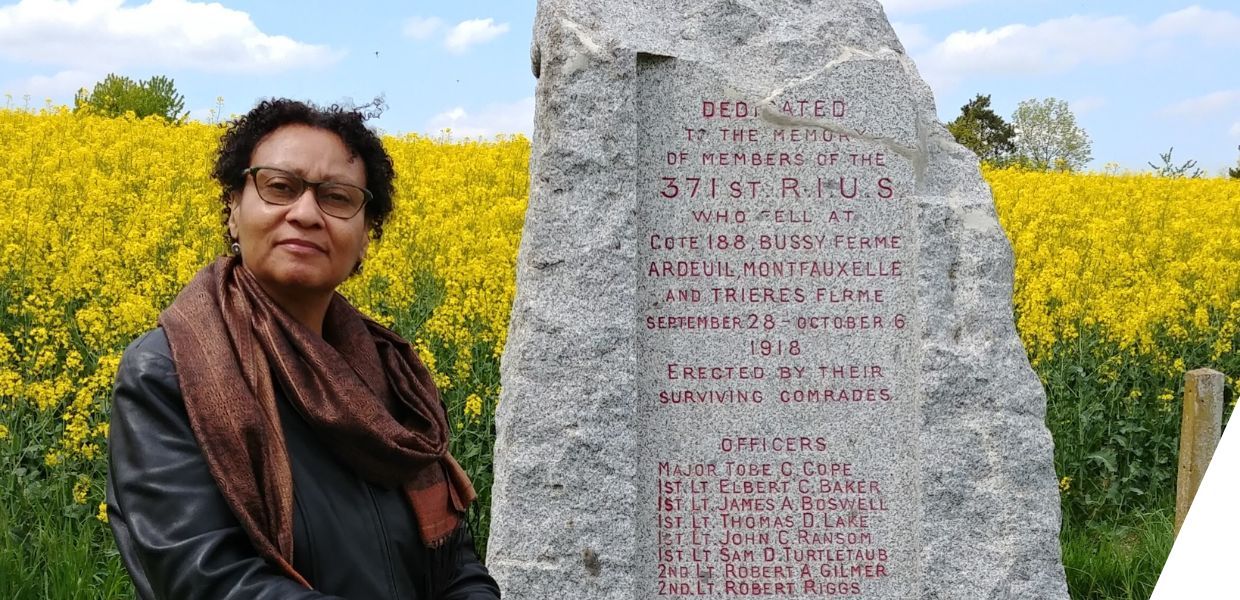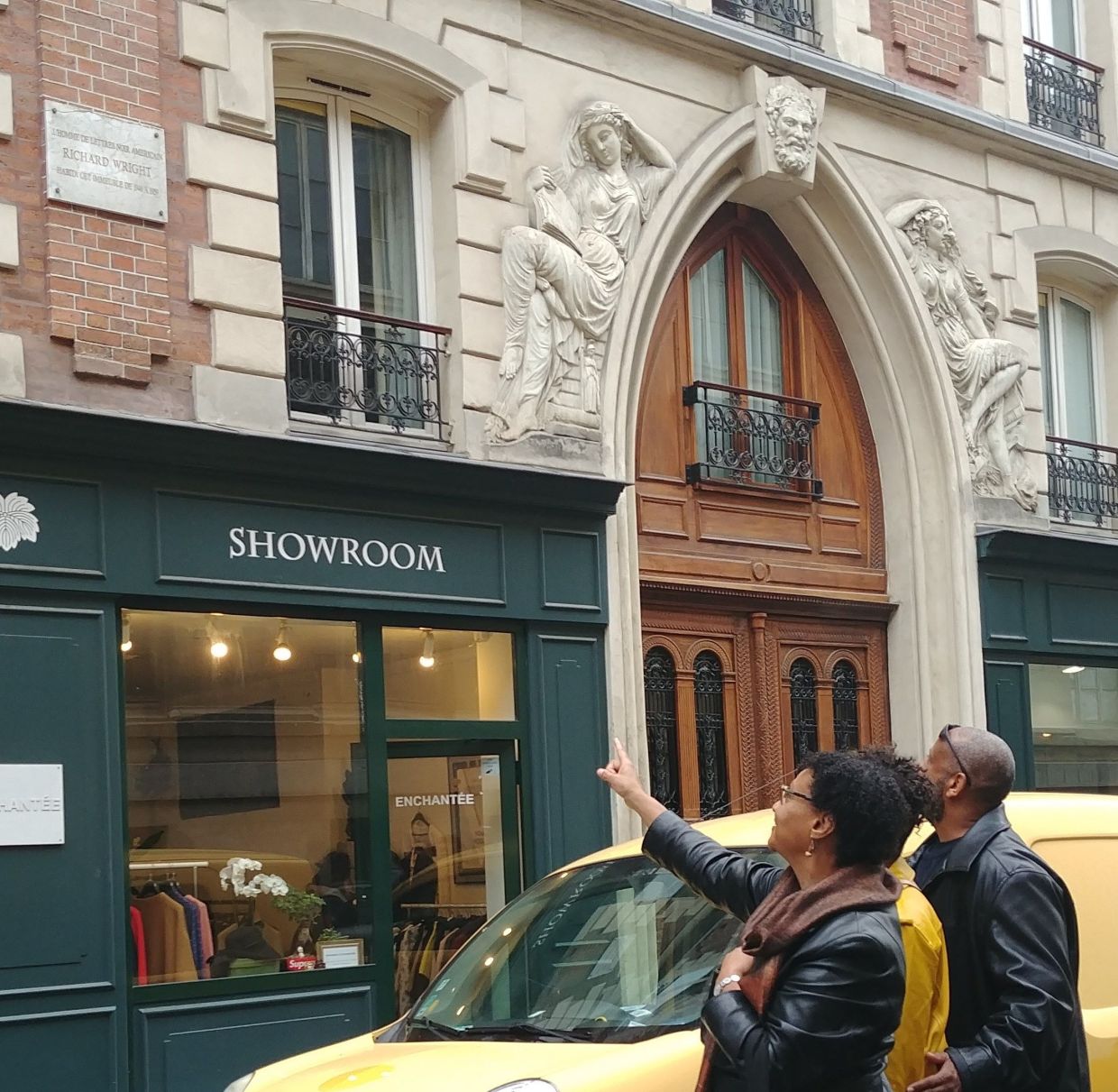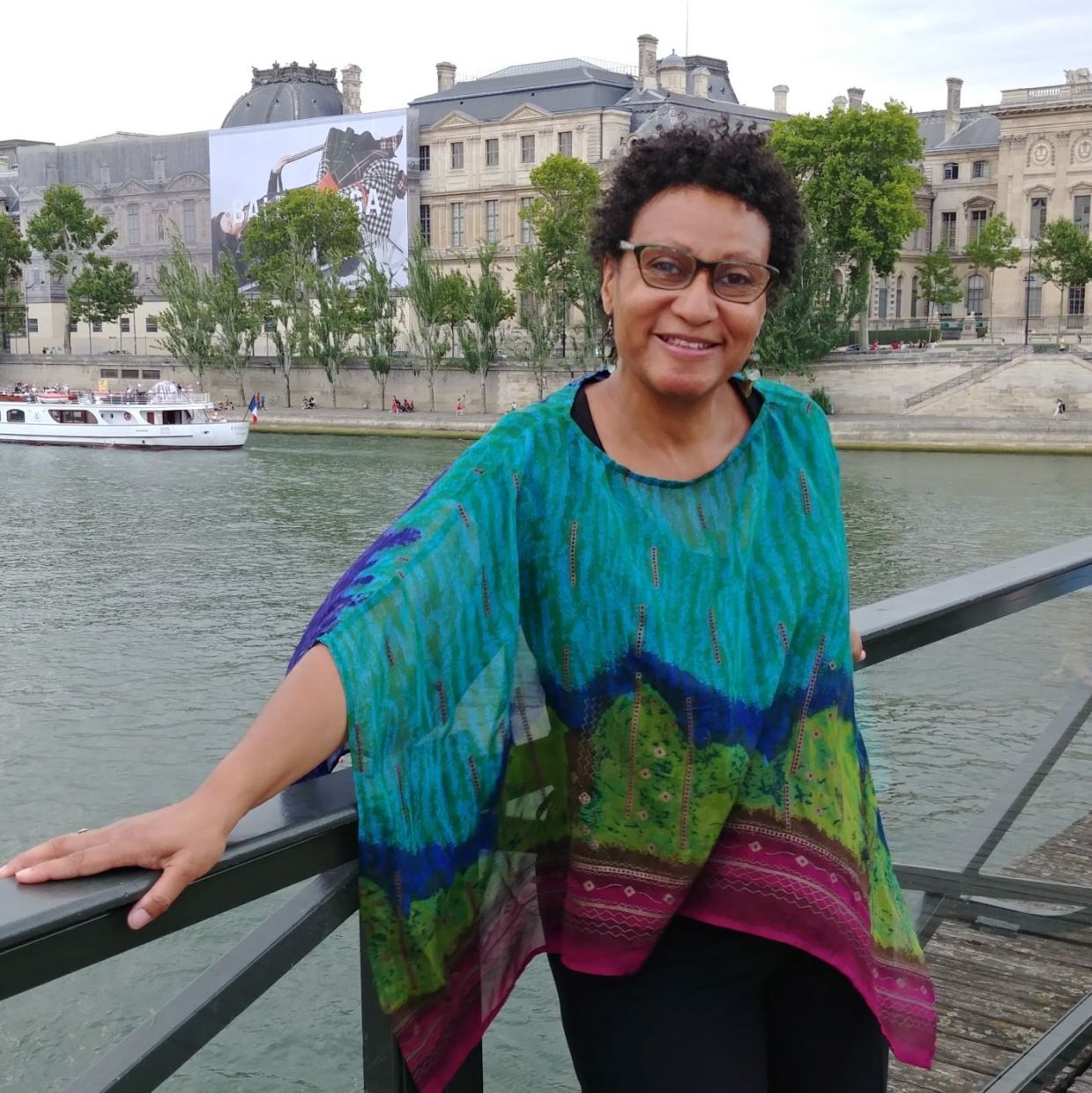How did Walking the Spirit begin?
Julia Browne was born in the United Kingdom, to parents who were part of the Windrush generation - the first large groups of Caribbean people to emigrate to the UK, named after the first ship carrying them, HMT Empire Windrush. Julia’s family emigrated to Ontario, Canada, in the 1960s, where Julia learnt French at school and started to take an interest in all things Francophone. Later, she moved to French-speaking Montreal and ultimately to Aix-en-Provence in France. Here, she met the man she would later marry, and together they moved to Paris, arriving in 1990, on 1 February - a date that happened to be the anniversary of the birth date of one of her favourite writers, Langston Hughes. It was here that a sequence of events led to a passion project turning into a successful business.
Julia explains: ‘I was living the life of getting settled, I was a new mother, working in film and television and trying to follow opportunities there. I started taking courses at the Sorbonne, and took a class with the late Professor Michel Fabre, the specialist of African American history and culture in France. He became my mentor and this world opened up to me. He had written a book for a conference, called A Street Guide to African Americans in Paris. I started walking around Paris, following where the book took me. I went to a place in my neighbourhood in the 17th district - where the book said Langston Hughes had lived. I found the building and waited for the concierge to go out for lunch and I snuck in, up to the top floor where he had lived. There I was, standing in front of the door where Langston Huges had lived and written his jazz poetry. I realised there was all this history here. That’s where it started for me. My being in Paris made sense to me then.’
Julia was fascinated - following this book, Paris revealed itself to her. Layers of history that weren’t visible on the ground showed themselves. She threw herself into researching more, following the characters and the events she hadn’t known about. When her friends wanted to know more, she showed them what she had found. Before long, journalists were asking about her tours and members of the public started to come along. Walking the Spirit was born in 1994 and is now celebrating its 30th year.
What does Walking the Spirit offer today?
Some of the original walking tours that Julia offered 30 years ago are still on the programme, alongside many new explorations of focussed subjects such as the African district, jazz, diaspora exchange, the Slave Trade and colonialism. The experiences Julia offers have now expanded, offering bus tours covering more of the city, as well as customised programmes for schools, and bespoke itineraries for travellers on holiday.
Julia has also joined forces with a film-making team and became associate producer and main presenter/lecturer of two important documentaries. ‘Paris Noir-African Americans in the City of Light’ gives an invaluable overview between WW1 and 1960. ‘Fighting For Respect’ captures the plight of African American soldiers who fought in WWI, receiving the Croix de Guerre military decoration from France, while still fighting discrimination and hatred at home in America.
The tours are expanding and developing all the time, influenced by both new research Julia continuously undertakes and equally by the people she talks to. ‘I research many sources, including the archives of different universities. There’s excellent and exciting scholarship being published regularly, I listen to really informative and thought-provoking podcasts, and I follow the news. This shows me what is of concern at the moment. I think, how does that reflect on what I talk about and reframe what we talk about? I talk to people who have made their lives here about their experiences, and that informs a lot of what I say to people.’
Walking the Spirit works with an organisation that specialises in university alumni tours They curate week-long programmes exploring Paris and Black heritage. ‘Every day is a different museum or tour or experience and every day is an opportunity to share my knowledge, but also to learn from the group. I get a different exchange every week and the value of that is immeasurable. It helps me finetune the stories that I tell. I might be telling the same story a different way every couple of weeks because of that interaction.’




